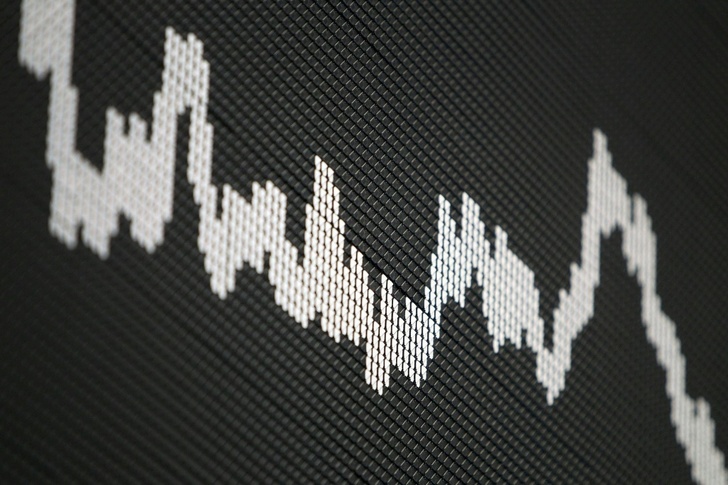Asian markets sank again Friday following a rout on Wall Street as signs of trouble at a regional US lender sparked concerns about the wider sector as the Federal Reserve ramps up interest rates.
The sell-off comes as traders nervously await the release of US jobs data later in the day, with many fearing a forecast-beating figure could press the central bank to ramp up borrowing costs more than previously thought.
US lenders were sent into a tailspin Thursday after SVB Financial Group, which specialises in venture-capital financing, announced a stock offering and offloaded securities to raise much-needed cash as it struggles with falling deposits.
The firm's shares collapsed 60 percent in New York as it said it lost $1.8 billion following the sales.
The news came as crypto banking giant Silvergate said it planned to close as the sector faces more turmoil.
Major US banks suffered hefty losses, with Wall Street titans including JP Morgan and Goldman Sachs sharply lower.
Data showing more people than expected made jobless claims last week -- indicating a softening of the labour market -- was unable to soothe investor worries, and all three main indexes were deep in the red by the close of trade in New York.
US Treasury yields sank as investors flocked to the safety of government bonds.
While higher borrowing costs can be beneficial for banks, many that took out loans and made other investments during the period of ultra-low rates have seen their value erased as the Fed tightens monetary policy to fight inflation.
Lenders are also struggling to keep customers and so offer better rates, or sell assets at a discount, putting pressure on the smaller banks.
"We have been in a zero-interest regime for a multiyear period and banks have operated in a certain way," said Jens Nordvig, of Exante Data and Market Reader. "Certain banks are going to have difficulty in a totally different environment."
- Eyes on US jobs -
And SPI Asset Management's Stephen Innes said: "In days like this, 'bad news is indeed bad news', especially when the potential of massive mortgage defaults enters the market purview.
"Even the swelling jobless ranks offered little relief to nervous investors. Traders draw a straight line from bulging jobless ranks to mortgage defaults and rotate into safety."
He offered a word of warning about the outlook, adding: "Provided (the Fed) are prepared to use their most blunt tool, higher for longer interest rates, it will be challenging to express a lasting 'risk-on view', given that the choppy policy waters may not offer as plain sailing as it was at the beginning of the year."
In early trade, Asian markets were well down, with banks taking a hit.
HSBC lost more than two percent in Hong Kong, as was National Australia Bank in Sydney, while Tokyo-listed Mitsubishi UFJ Financial Group gave up around three percent.
Hong Kong's Hang Seng Index fell more than two percent -- wiping out all the year's gains -- while Tokyo, Sydney, Seoul, Taipei and Manila were off more than one percent.
Shanghai, Singapore, Jakarta and Wellington were also sharply lower.
And there is a fear of further big losses if the US jobs report comes in above expectations later Friday after Fed boss Jerome Powell warned officials were ready to hike rates even more if data showed the economy remained robust.
"With all the panic around the banking system, if the job report is good, that's not good for markets," Shana Sissel, of Banríon Capital Management, told Bloomberg Radio.
The Fed would "kind of have to stay with the policy that they've been communicating", she added.
On currency markets, the yen weakened after the Bank of Japan decided against making any changes to its ultra-loose monetary policy, after boss Haruhiko Kuroda's final meeting.
The Japanese unit eased to 136.90 per dollar, from 136 before the announcement.
- Key figures around 0230 GMT -
Tokyo - Nikkei 225: DOWN 1.2 percent at 28,271.58 (break)
Hong Kong - Hang Seng Index: DOWN 2.6 percent at 19,413.01
Shanghai - Composite: DOWN 0.8 percent at 3,249.42
Euro/dollar: UP at $1.0589 from $1.0586 on Wednesday
Pound/dollar: DOWN at $1.1918 from $1.1922
Euro/pound: UP at 88.84 pence from 88.77 pence
Dollar/yen: DOWN at 135.95 yen from 136.15 yen
West Texas Intermediate: DOWN 0.3 percent at $75.46 per barrel
Brent North Sea crude: DOWN 0.2 percent at $81.43 per barrel
New York - Dow: DOWN 1.7 percent at 32,254.86 (close)
London - FTSE 100: DOWN 0.6 percent at 7,879.98 (close)
dan/cwl
© Agence France-Presse
Your content is great. However, if any of the content contained herein violates any rights of yours, including those of copyright, please contact us immediately by e-mail at media[@]kissrpr.com.
Source: Story.KISSPR.com

